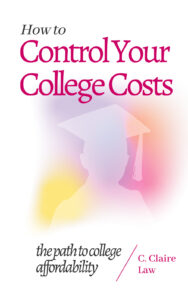When students with learning disabilities decide to go to college, they face not only the challenge of finding the right college match but also the right type and the right level of learning support services.
In our private practice we encounter a variety of students who will need learning supports in order to be successful in college. Some may have learning disabilities that were never diagnosed and may be performing way below their potential. Others are fortunate to be receiving the highest level of support from their high school, called an Individualized Educational Plan (IEP). A lower level of support just below an IEP is called a 504 plan, which means that by law – the Americans with Disabilities Act (ADA) – schools will accommodate students in order to level the playing field. Unfortunately, IEPs go away once students enroll in college. Colleges offer only 504 plans as required by the ADA, and in general, the level of support is much less than in high school. Hence students need to be realistic about what’s available in college and must be stronger advocates for themselves.
We can classify three levels of learning support found in college: 1) accommodation, 2) services, and 3) comprehensive programs. To qualify, students must present a recent psycho-educational evaluation among other documents.
- Accommodation is a level of support that colleges are mandated to provide under ADA mandates for students who have physical or learning disabilities. However, this does not mean that a college should be forced to meet extraordinary means to aid students if doing so would place the college under tremendous financial or other difficulty. Hence students need to size up the college before they apply, to ascertain whether the college can accommodate their physical or learning needs.
- The “service” level of support in college is a step up from accommodation, but not all colleges offer this. Students must first meet the same admission requirements as all other students and then apply for “services”. Often, there are more students than spaces available at the “services” level. Students who are strong advocates for themselves do best, especially if they have a good sense of when they are starting to get overwhelmed by the academic workload and seek help before tests’ and exams’ time. “Services” provide both coaching and tutoring in certain subjects, typically writing and math, and students can meet with a coach weekly, if there is space. At the College of Charleston for example, students who qualify for the SNAP program get help with planning, academic skills, syllabi, calendar coordinating, time management, and other executive functioning , so that they don’tfall through the cracks. While the SNAP program is available to students at no charge, some colleges do charge a fee for these offerings with the amount depending on the number of resources required.
- The third and highest level of learning support is classified as “comprehensive”. These programs are few and far in between, and bear a separate cost, in addition to tuition and fees. The student’s psycho-educational evaluation (that includes the student’s cognitive ability and achievement) is carefully considered during the application process. Examples of “comprehensive programs” are found at U of Arizona (SALT), Marshall U, Curry College (PAL), Lynn University (FL), and Limestone College (SC). Students disclose their disability at the outset and apply both for admission to the college and admission to the program. Students meet one on one with a trained professional, such as a learning specialist, at least once or twice a week, on a regular basis. The instruction is tailored to give students strategies to enhance learning, and create a detailed plan for overall success. Typically, comprehensive programs serve students with language based learning disabilities such as dyslexia, processing issues, and ADD/ ADHD. For example, in the PAL program at Curry College in MA students learn strategies to self-regulate, to use “meta-cognition” and to deal with other issues such as receptive and expressive language. At Lynn University students check in with a learning specialist once or more times a week.
One word of caution here is needed: not all learning disabilities are the same and such programs would may not a student on the spectrum. In general, comprehensive programs are ideal for students who are aware that they need a ton of support, and need regular times to check in with a professional. If at all affordable, it’s generally better to start college with more support than less. When students who need a comprehensive program hesitate to enroll, we often advise them to try it, especially in first year, when students are getting used to the pace of studying and learning in college. If they find that they are successful, they can wean themselves out of the comprehensive program or go into a lower level of support. When a student keeps up with the demands of college, is getting good grades and shows that he can do it on his own, it’s a promising sign of personal growth.

